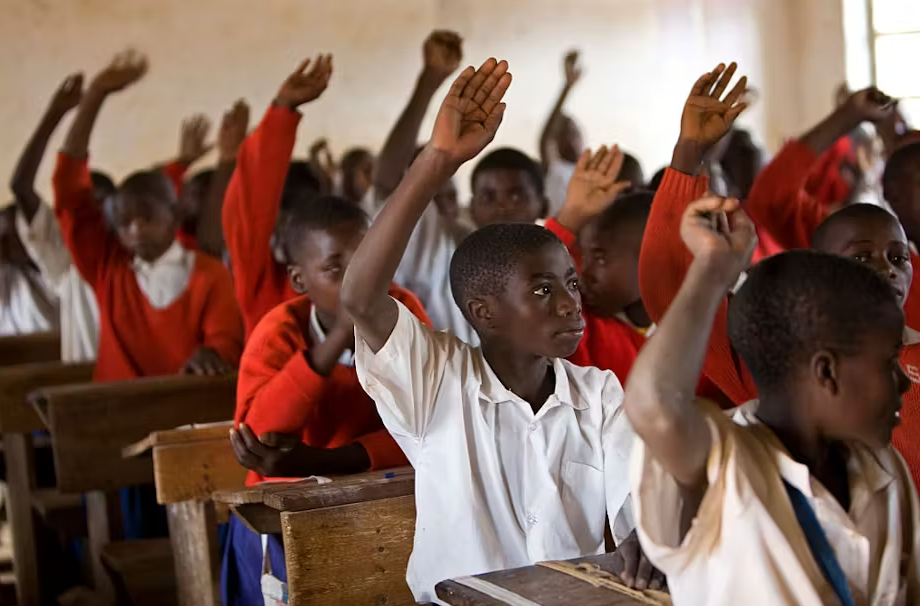Education is undeniably one of the key pillars of sustainable development. The United Nations Sustainable Development Goal 4 (SDG 4) seeks to ensure inclusive and equitable quality education for all, and governments are encouraged to allocate significant resources to achieve this goal.
However, recent data points to a concerning trend in Tanzania’s commitment. Between 2004 and 2023, the proportion of total government spending on essential education services has sharply declined from 19.5% in 2004 to 13.7% in 2023.
This article provides a Monitoring, Evaluation, and Learning (MEL) perspective on the decline in Tanzania’s education spending and its potential impacts on national development based on exclusive SDG datasets.
A 10-Year Trend: The Steady Decline in Education Spending
The data paints a clear picture: Tanzania’s investment in education, as a percentage of its total government spending, has been gradually decreasing. In 2004, education accounted for 19.5% of government expenditure, a significant commitment that underscored the importance of building a strong foundation for the future.
Also, read Monetary Policy: Tanzania’s Adoption of Interest Rates
Fast forward to 2023, and the allocation has dropped to 13.7%, a stark reduction that raises critical questions about the country’s development priorities.
Key Figures:
- The proportion of Government Spending on Education (2004): 19.5%
- The Proportion of Government Spending on Education (2023): 13.7%
Understanding the Impacts of Reduced Education Spending
From a MEL perspective, the decline in government spending presents a host of challenges that could hinder Tanzania’s ability to meet not only SDG 4 but also other interconnected goals such as poverty reduction (SDG 1), gender equality (SDG 5), and economic growth (SDG 8). Here’s why:
- Access and Infrastructure: With reduced government spending, Tanzania risks underfunding vital infrastructure projects like building new schools, improving facilities, and expanding access, especially in rural areas. Fewer funds mean essential services such as textbooks, technology, and teacher training could also suffer, leading to lower-quality education.
- Inequality: Reduced investment could exacerbate existing inequalities. Vulnerable groups, such as girls and children from low-income families, could face greater barriers to accessing quality education, reinforcing cycles of poverty and gender disparity.
- Human Capital Development: The country’s long-term economic prospects could be undermined if the system is not adequately funded. A lack of skilled and educated workers could limit Tanzania’s ability to compete in an increasingly knowledge-based global economy.
Evaluation: What’s Behind the Decline?
Various factors could drive the declining investment, including budgetary constraints, shifting government priorities, or external economic pressures.
Tanzania has been investing heavily in infrastructure and healthcare, both of which are critical for development, but this has potentially come at an expense. Additionally, the impact of the COVID-19 pandemic likely strained national budgets, forcing cuts to essential services.
Learning from the Decline:
- Resource Reallocation: The government’s decision to reduce spending may reflect short-term priorities, but the long-term consequences—such as a less educated workforce—must be carefully considered. This underscores the need for a balanced approach to resource allocation across sectors.
- Leveraging International Support: To counteract the domestic budget constraints, Tanzania could explore increased funding from international partners, including multilateral organizations and donors focusing on education.
To reverse the decline in education funding and secure Tanzania’s future, all stakeholders—government officials, private sector partners, and international donors—must urgently prioritize education spending. Increased investments in infrastructure, teacher training, and resources are critical to ensuring that every child, especially those from vulnerable backgrounds, has access to quality education.
By acting now, we can equip Tanzania’s youth with the skills to drive their long-term growth and development. Let’s work together to restore the cornerstone of Tanzania’s sustainable future.

